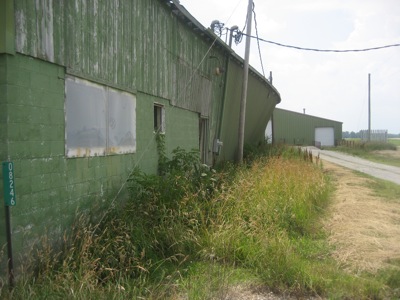Wednesday, June 26th, 2013
County lends support for dorm
By Shelley Grieshop
CELINA - Mercer County Commissioners on Tuesday set a public hearing for July 9 to discuss plans to help fund a new student dorm near Wright State University-Lake Campus.
The 11 a.m. public hearing at the commissioner's office in the Central Services Building in Celina will solicit discussion on a proposal to support the issuance of tax-free economic development revenue bonds on behalf of the Western Ohio Educational Foundation. The WOEF Board plans to construct a $1.7 million student apartment complex - the second one to border the lakeside campus.
The county will act as financial conduit for the WOEF Board by supporting the purchase of revenue bonds by People's Bank to fund the dorm's construction.
"The county is not lending them the money," commissioner Jerry Laffin stressed.
By law, commissioners cannot support the issuance of revenue bonds without first garnering approval by the county's Community Improvement Corporation. The CIC meets at 8 a.m. Tuesday to discuss the matter.
Mercer County Commissioners and the bank helped the WOEF Board obtain bonds to build the university's first dorm, Knapke Villa.
Construction on the second dorm is expected to begin this summer on an 8.4-acre lot west of the campus. Students should be able to occupy the building by the 2014 fall semester, officials have said.
Knapke Villa, a $1.6 million venture, debuted in 2012-2013 and is at full residency with 28 students. The new dorm will house up to 32 students and offer laundry facilities and a full-time apartment for a residential community director.
Plans are to build eight dorm units to the west of the campus as the need arises, officials said.
In other business Tuesday, commissioners,
• awarded a contract to The Detroit Salt Company for road salt at $65.23 per ton. The estimated quantity to be used is 3,500 tons. The Michigan company submitted the lowest price of six companies seeking a contract.
Last year the county paid $67.96 per ton from Detroit Salt, which had submitted the lowest bid. Crews used 1,132.50 tons of salt costing $76,941.

